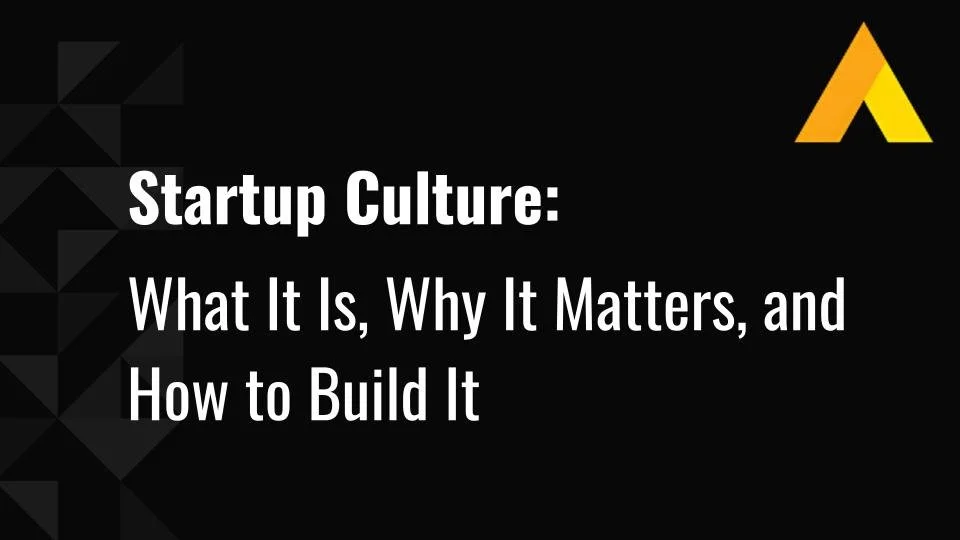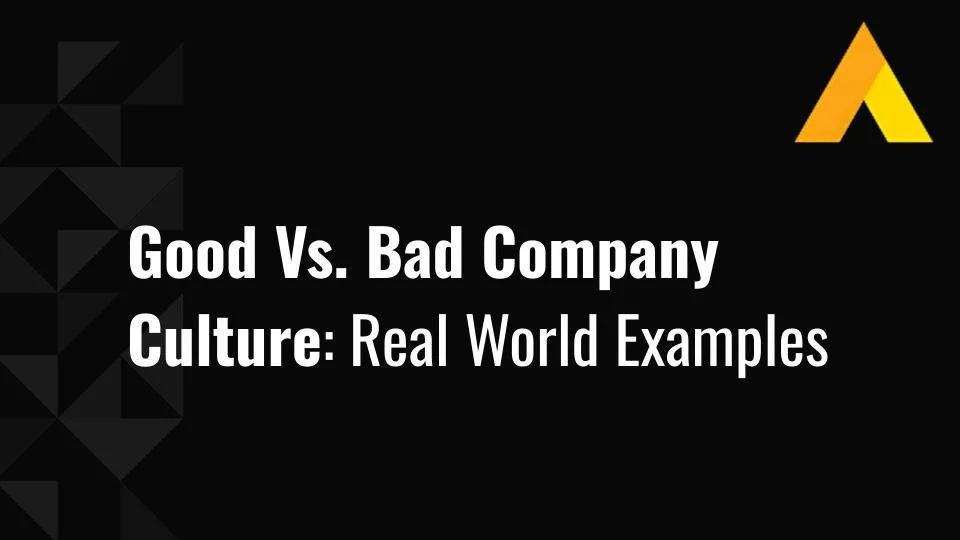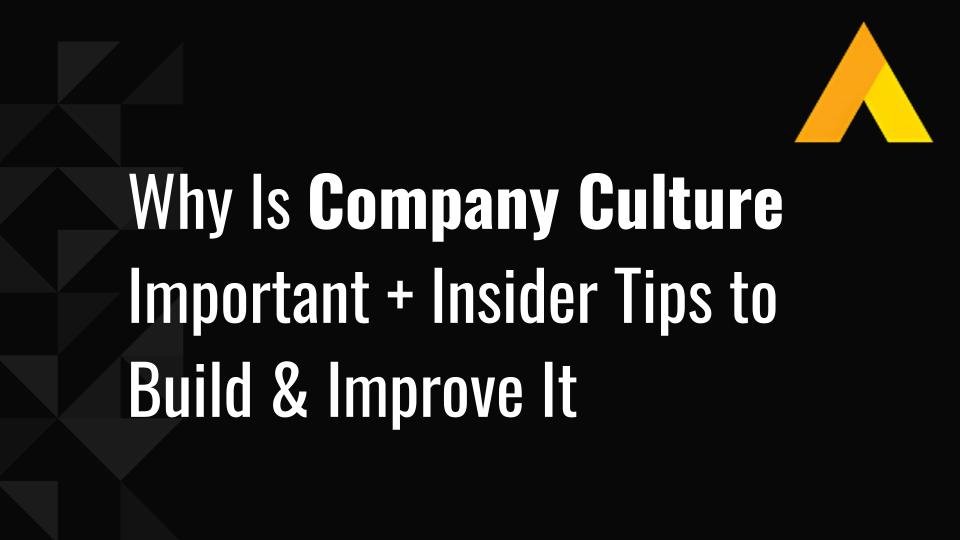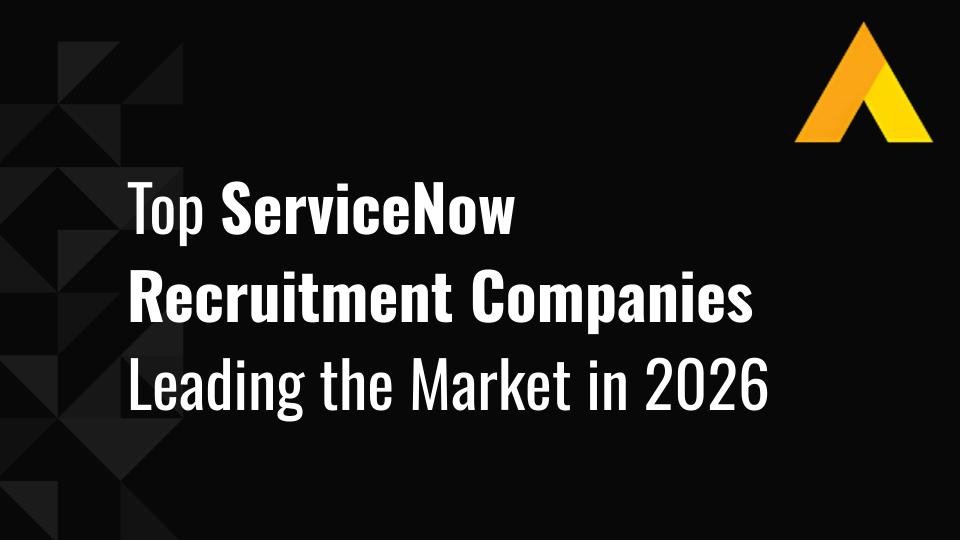Sheila
Sheila manages and also publishes content across clients’ websites, creating engaging landing pages and overseeing blog posts with over a year of experience. She expresses her creativity in art and craftwork such as drawing, painting, and punch needle, and enjoys spending quiet moments with her cat, exploring museums, and savoring a fine cup of coffee.
Company culture decides how work actually gets done when no one is watching. It shows up in conversations, decisions, and the way teams handle pressure.
Some workplaces feel energized and clear. Others feel tense and confused. This difference rarely comes from strategy alone.
This is where startup culture comes in.
It reflects a way of working shaped by creativity, flexibility, ownership, and shared belief. When startup culture stays intentional, teams collaborate with clarity, trust grows, and work feels purposeful. And when it drifts, small issues turn into friction, productivity slips, and engagement fades.
Its importance is widely recognized. Research shows that 94% of executives and 88% of employees believe a distinct workplace culture is critical to business success.
This blog explores startup culture in a practical way. We’ll cover:
What startup culture really means and how it differs from corporate culture
Why startup culture shapes employee engagement, performance, and brand reputation
Common startup culture types and where each one fits best
Practical ways to build and maintain startup culture as teams grow
ServiceNow leadership hiring requires finding people who understand enterprise technology, have great platform knowledge, and can make the right calls at an executive level.
When the stakes reach this level, internal talent teams often lack the reach and specialization required to deliver consistently.
That’s why nearly 76% of executive-level hires today are facilitated by external search partners.
For this reason, we prepared a curated list of the Top ServiceNow Executive Search Agencies.
This article offers a clear view of the market, built for founders, CIOs, board members, and talent leaders who want direction before starting outreach.
A short profile for each firm
Services each agency handles within the ServiceNow niche
Key industries they serve
Let’s dive in.
Finding ServiceNow talent feels like a whole project by itself.
Over 85% of Fortune 500 companies now rely on the platform, but demand is rapidly outpacing the number of experienced practitioners.
Many teams try to handle the hiring on their own, only to experience delays, confusion, and offers that fall through.
And this is why a dedicated ServiceNow staffing agency is the smartest path forward.
To save you hours of trying to find the right one, we assembled a focused selection of the top ServiceNow staffing partners that really do deliver.
Each one has been reviewed through a practical, market-aware lens.
Inside, you will find:
Quick summaries of every agency
The type of ServiceNow talent they source
Their core focus areas
Finding the right people for data governance takes precision, experience, and a clear understanding of how high-impact roles shape an organization.
Given that 80% of organizations see data governance as critical to operational performance, this is less a hiring challenge and more a strategic decision.
That is why a specialized search partner makes the whole process smoother and far more effective.
To help you make a good choice, we prepared a list of firms that focus on this space and understand its complexity inside and out.
Inside this guide, you will find:
A curated list of the top data governance executive search firms
The leadership roles each agency covers
Key industries they serve
Ever notice how some teams show up energized, speak up in meetings, and actually care about outcomes, while others just clock in and out?
That difference rarely comes down to perks or pay alone. It usually comes down to company culture.
Workplace culture shapes how people feel, communicate, and perform every single day. When culture feels clear, supportive, and consistent, engagement levels rise naturally. And when culture feels unclear or performative, employee satisfaction drops, trust erodes, and turnover rates climb.
Data backs this connection as well. Gallup found that highly engaged teams see up to 18% higher productivity and 23% higher profitability.
In practice, this means culture directly influences performance, retention, and results. When culture works, engagement follows. And when it doesn’t, no incentive plan can fully fix it.
That’s why in this blog, we’ll cover:
What company culture really means
How employee engagement differs from satisfaction and motivation
The specific culture drivers that shape engagement levels
The business impact of strong and weak cultures
Practical ways organizations can improve workplace culture and engagement
How to measure culture and engagement
Boston’s talent market is tight. The city recorded a 4.2% unemployment rate in January 2025, while employers posted nearly 100,000 job openings over the past few months.
Add Boston-Cambridge’s position as the nation’s leading life sciences hub, and competition intensifies across biotech, fintech, and university spin-outs. Specialized skills are harder to attract, harder to retain, and more expensive to lose.
This pressure makes strategic Human Resources Consulting a smart play. Gallup’s latest meta-analysis shows teams in the top quartile of engagement drive 23% higher profitability than those in the bottom quartile. Workforce strategy now links directly to business performance.
No wonder analysts expect the global market for HR outsourcing and consulting to reach $81.71 billion by 2029.
Picking the right firm matters. The firms below understand Boston’s ecosystem. They strengthen compliance, speed up hiring, and connect culture to performance. Your workforce becomes an advantage rather than a bottleneck.
Company culture shapes everything that happens inside a business. It influences how people work together, how leaders make decisions, and how employees feel on both normal days and stressful ones.
A strong culture builds clarity, trust, and momentum. A weak one creates confusion and churn. This is not just theory.
In a retention study, 32.4% of employees who quit a job in the past year said a toxic or negative work environment was the main reason they left. This statistic shows how directly culture can push people out the door.
This article breaks down:
What good and bad company cultures look like in real life
How daily behaviors, decisions, and habits turn into green flags or red flags employees feel
Real-world examples that help you compare these patterns with your own workplace
How to spot what’s working, what’s harmful, and where to focus to build a healthier, more effective culture
ServiceNow is a widely used enterprise platform, with over 8,400 organizations worldwide using it to run IT operations, including security operations (SecOps). But with that comes the need for specialized talent, particularly SecOps developers, who set up the platform to meet your business needs and help run it smoothly.
However, finding the right person for this job can be a tall order, and we know that first hand.
Adoption of the platform is rising at a double-digit year-on-year rate, which is increasing skill gaps, according to K2. After all, ServiceNow developers are incredibly niche.
A well‑qualified SecOps developer would understand the ServiceNow Platform but also bring expertise in scripting, API integration, and security practices that align with real‑world operational risk reduction.
For IT leaders and recruiters dealing with this talent gap, the first step to getting the sourcing just right is understanding how to:
Define proficiency,
assess candidates,
and set up practical skills tests
That’s what we’ll share in this article so you can recruit and hire developers to support your current SecOps implementation.
Company culture shapes how people actually work day to day. It shows up in how teams make decisions, handle pressure, and treat customers when no one is checking a playbook. Long before KPIs or incentives kick in, culture is already influencing performance.
This matters even more today. Remote work is common, employee expectations are higher, and keeping good people has become harder than ever.
ResearchGate study backs this up. The results show that organizations with high employee engagement see 21% higher profitability and 17% higher productivity compared to disengaged teams.
Culture plays a direct role in these outcomes because it guides behavior when no one is watching.
If you work with ServiceNow talent, you already know the hiring process can be difficult.
Roles change fast, skills evolve, and companies need a good partner who can keep an eye on all of those changes.
That pressure is reflected in the market, with demand for ServiceNow transformation talent rising by roughly 55% year over year, outpacing the available pool of experienced professionals.
That is why a focused recruitment firm makes life much easier in this space.
However, identifying the right partner in a niche market like ServiceNow can be challenging.
For this reason, we prepared a list of the top ServiceNow recruitment companies.
Each company was reviewed with a practical lens and real hiring scenarios in mind.
Here is what you will find:
A curated list of the leading ServiceNow recruitment agencies
What types of roles each one fills
Core recruiting services they offer
Continue reading to explore the list in detail.
Remote work is no longer a temporary shift. It is how many teams operate today. In this setup, company culture does not disappear. It either grows with intention or slowly weakens.
The numbers explain the risk. Gallup reports that only 21% of employees feel engaged at work, and engagement drops further when remote teams lack clear communication and leadership visibility.
Separate research also shows that nearly 19% of remote employees struggle to build strong relationships at work, which directly affects trust, collaboration, and long-term employee morale.
Without daily in-office cues, workplace culture must be designed on purpose. Trust, psychological safety, employee well-being, and work-life balance now depend on clear systems, shared company values, and consistent leadership.
This guide covers:
What remote company culture actually means and where many teams get it wrong
The biggest challenges remote teams face and how they affect employee morale
The core pillars behind a strong remote work culture and organizational culture
A step-by-step framework to build culture across hybrid teams and fully remote teams
Real examples from successful remote companies you can apply right away
How to measure culture using clear KPIs instead of vague signals
Hiring SAP talent rarely works through generalist routes.
Different modules, different seniority levels, different markets, and very little margin for error.
Almost half of SAP customers report a shortage of qualified S/4HANA specialists, a gap that makes the cost of a wrong hire painfully clear.
That is why working with a specialized staffing agency makes sense, especially when the stakes involve core systems and long-term performance.
For that purpose, we put together this curated list.
This article walks you through the Top 15 SAP Staffing Agencies, selected with a sharp eye on relevance and credibility.
Here is what you will find inside:
A focused list of agencies with deep SAP specialization
The roles they handle across the industries
Core services each team brings to the table
Let’s dive in.
Building a high-performing ServiceNow team determines how well your organization delivers value. Many enterprises face slow implementations, growing technical debt, repeated incidents, and weak adoption due to unclear roles, ownership gaps, and misaligned skills.
Talent shortages make the problem harder. A recent survey found that 74% of organizations see skills gaps as the biggest barrier to digital progress. When roles, accountability, and capability planning fall short, ServiceNow performance suffers.
A structured team that includes admins, developers, architects, and business analysts supports faster delivery, fewer support tickets, stronger governance, and consistent platform health.
If you’re trying to hire ServiceNow talent right now, you’ve probably felt it already.
Job postings stay open for weeks. Strong candidates disappear fast. And the few resumes you do get rarely match what your platform actually needs.
You’re not alone. As enterprises accelerate digital transformation, demand for ServiceNow Developers, Administrators, and Architects keeps climbing. Supply is not keeping up.
With over 85% of Fortune 500 companies using ServiceNow, competition for experienced talent has become intense, global, and unforgiving. At the same time, the platform keeps evolving, which widens skills gaps even further.
The result is simple. Traditional hiring methods fall short. Time-to-hire stretches, quality drops, and ServiceNow initiatives stall inside IT instead of driving real digital operations.
This guide breaks down why ServiceNow talent is so hard to find and, more importantly, how you can attract better candidates.
We’ll cover:
Why demand for ServiceNow skills keeps outpacing supply
The most common hiring mistakes that cost companies strong ServiceNow candidates
What top ServiceNow professionals actually look for in roles, teams, and career growth
Proven strategies to attract, assess, and secure better ServiceNow talent faster
How specialized ServiceNow recruitment partners can reduce risk and improve hiring outcomes
Hiring the right ServiceNow developers is no longer just an HR decision. It affects platform performance, delivery speed, and how quickly you see value from your ServiceNow investment.
As ServiceNow expands across ITSM, HR, finance, and customer support, finding the right talent has become more difficult and more urgent.
This challenge is widespread. Research shows that 87% of companies worldwide already face a skills gap or expect one soon, particularly across enterprise IT and digital transformation roles.
With experienced ServiceNow talent in short supply, your recruitment choices can keep projects moving or bring them to a halt.
Most organizations weigh three options: hiring in-house, outsourcing development, or working with a ServiceNow staffing firm. Each path affects cost, control, speed, and long-term platform maturity.















